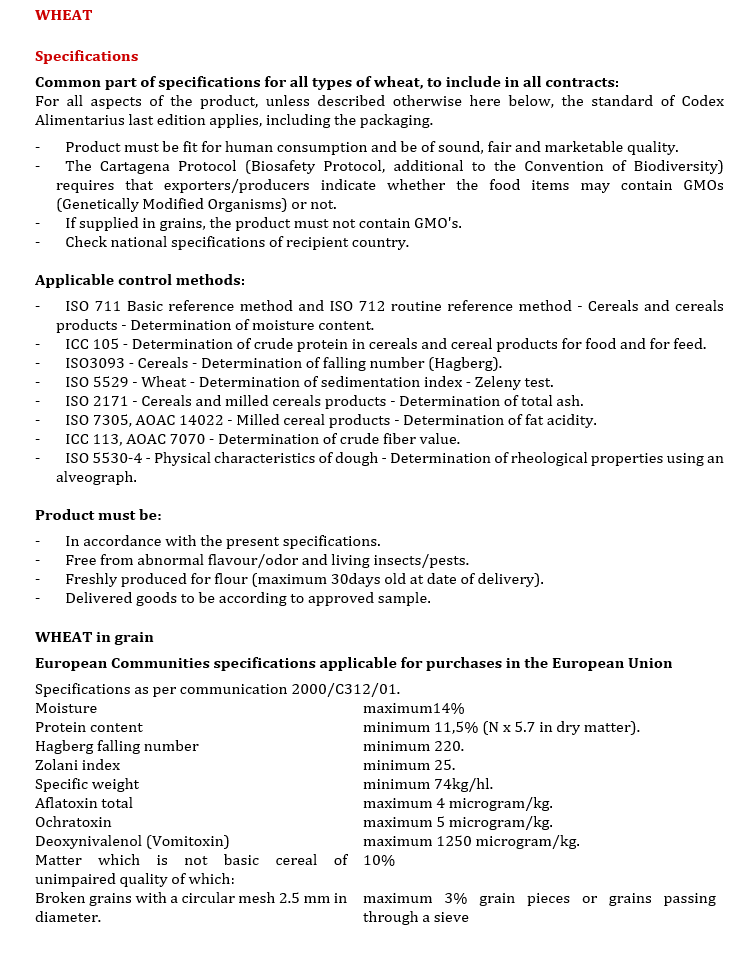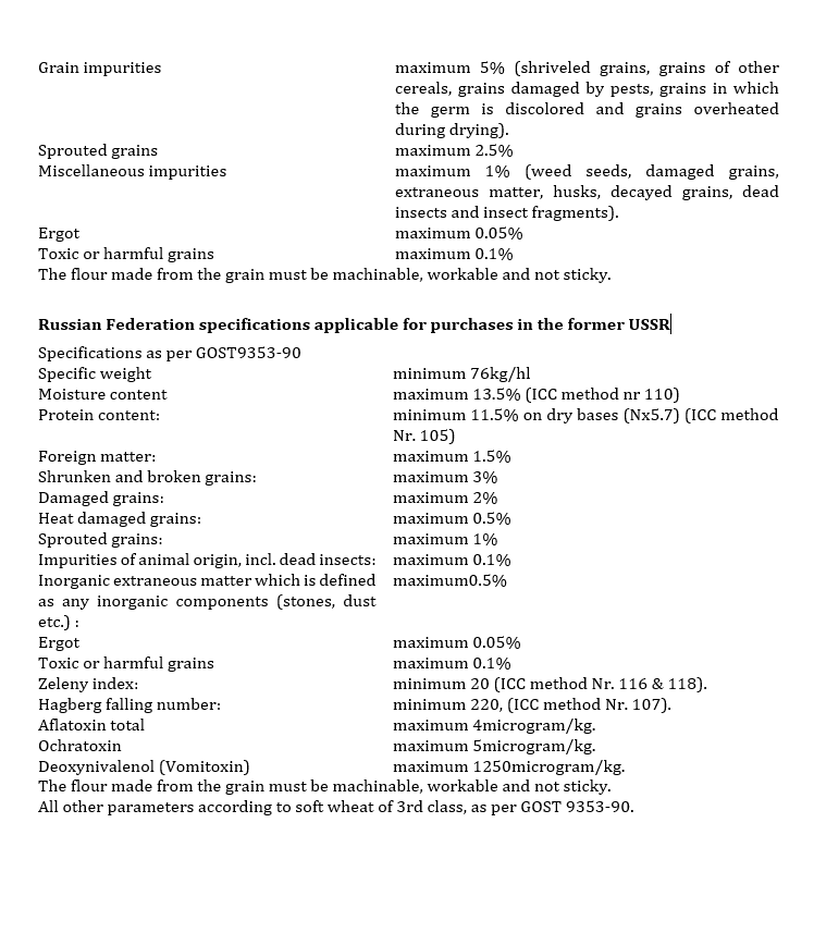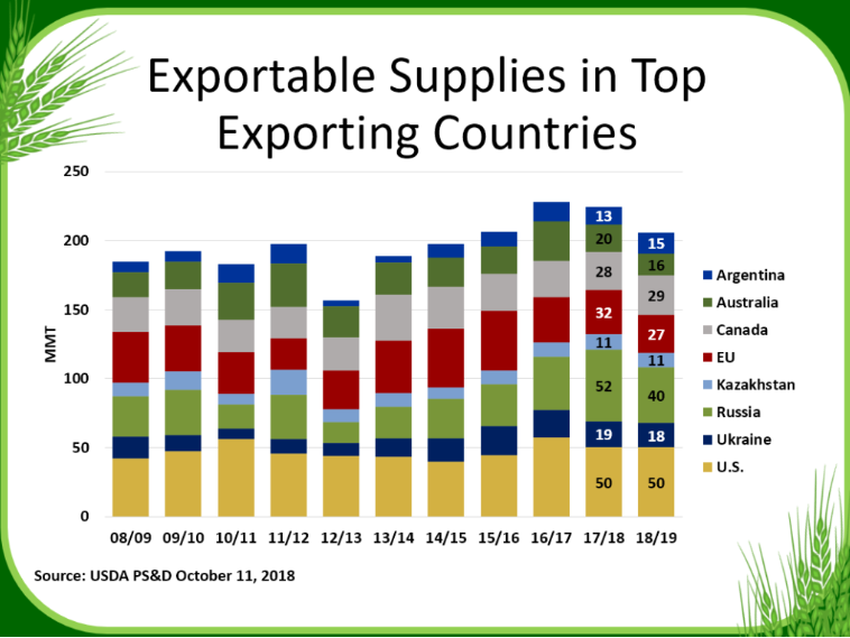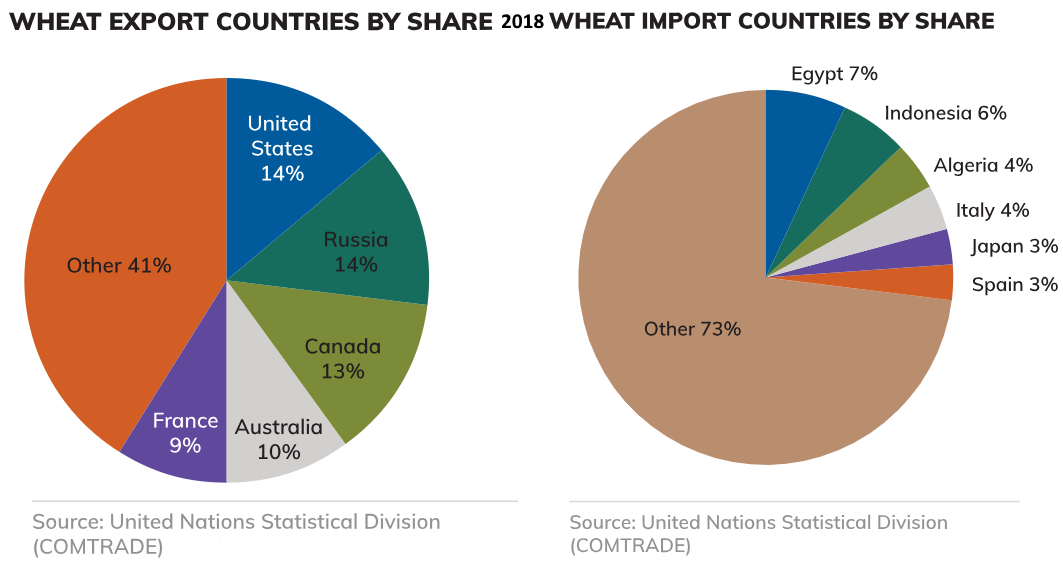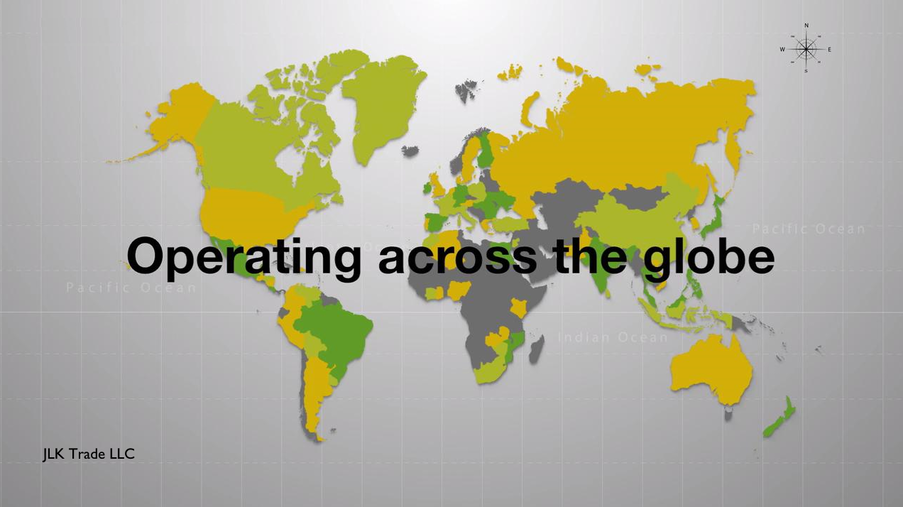Wheat is a key global commodity as concerns acreage and value and as a staple in diets. Wheat prices are influenced by many different parameters, like climate, yields, oil prices, and of course imports. In addition to a gradual and consistent frowing global wheat demand, these market drivers impact world prices directly and, in the end, food security.
Grains are now the most important part of the human food supplies. Around 21% of the world’s food supply is dependent upon the annual wheat crop, which regularly suffer from relatively low stocks. Developing countries, most of them are net importer of wheat, consume 78% of total global wheat production. Many of those countries have to subsidize the wheat in order to stabilize and/or lower food prices so it becomes affordable to the total population. However, increasing consumption because of population growth and increasing incomes in developing world puts upward pressure on wheat prices. Especially the growing middle class in highly populated, developing countries, like those in Asia, together with lifestyle changes and consumption patterns are the cause of an increase in demand for food, including grains.
On the supply side, climate and oil prices are two important parameters that have an impact on wheat production. Oil prices influence the cost of wheat. Changes in climate influence production, for instance length of the growing season as well as changes in temperatures and rain.
Grains are now the most important part of the human food supplies. Around 21% of the world’s food supply is dependent upon the annual wheat crop, which regularly suffer from relatively low stocks. Developing countries, most of them are net importer of wheat, consume 78% of total global wheat production. Many of those countries have to subsidize the wheat in order to stabilize and/or lower food prices so it becomes affordable to the total population. However, increasing consumption because of population growth and increasing incomes in developing world puts upward pressure on wheat prices. Especially the growing middle class in highly populated, developing countries, like those in Asia, together with lifestyle changes and consumption patterns are the cause of an increase in demand for food, including grains.
On the supply side, climate and oil prices are two important parameters that have an impact on wheat production. Oil prices influence the cost of wheat. Changes in climate influence production, for instance length of the growing season as well as changes in temperatures and rain.
Specifications

